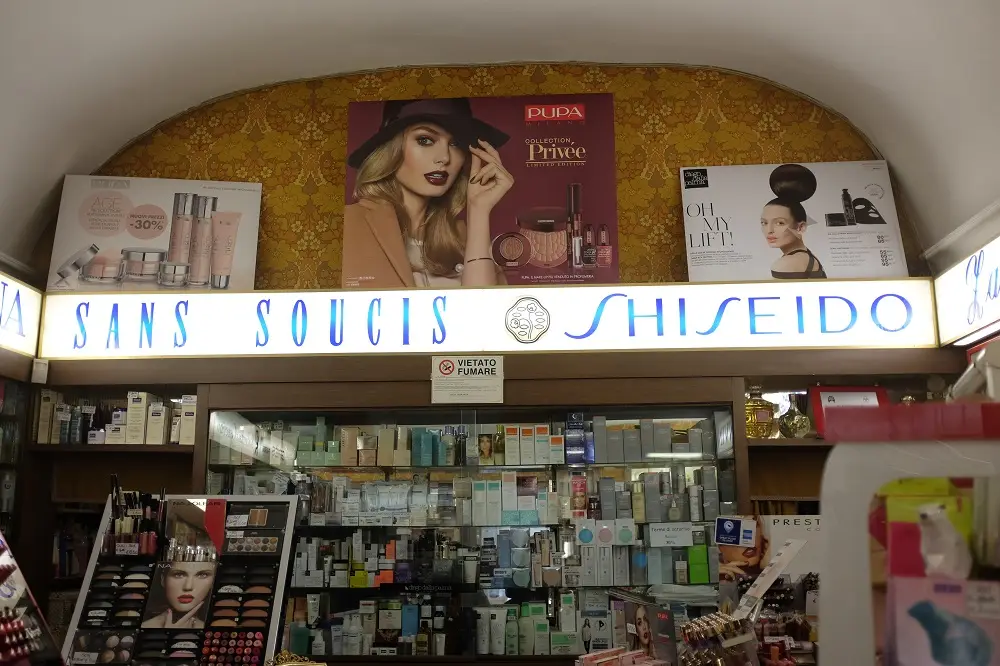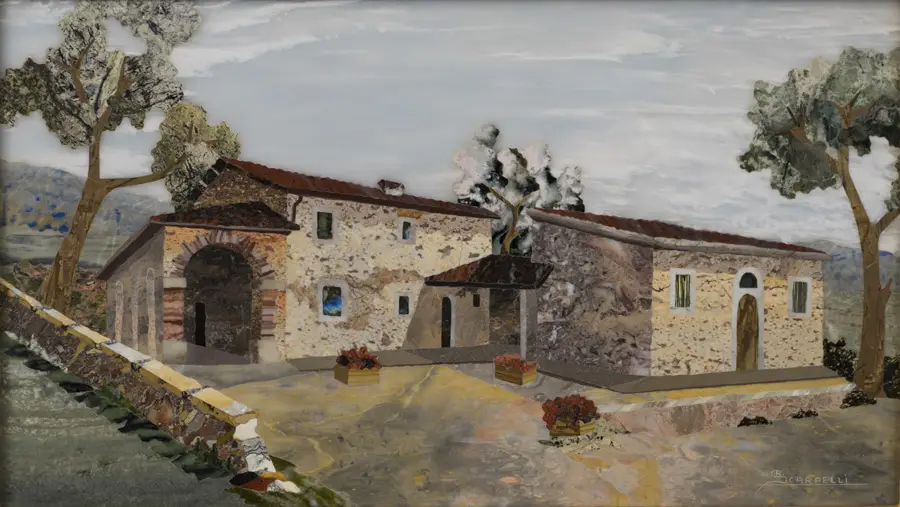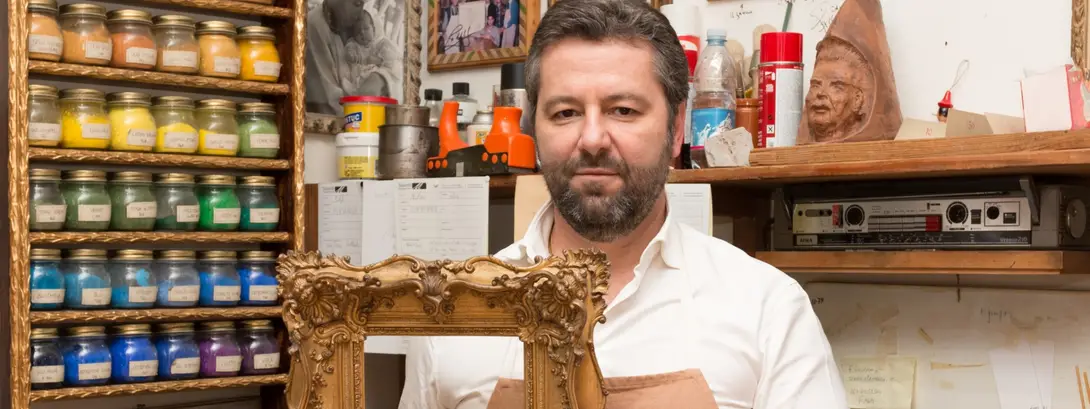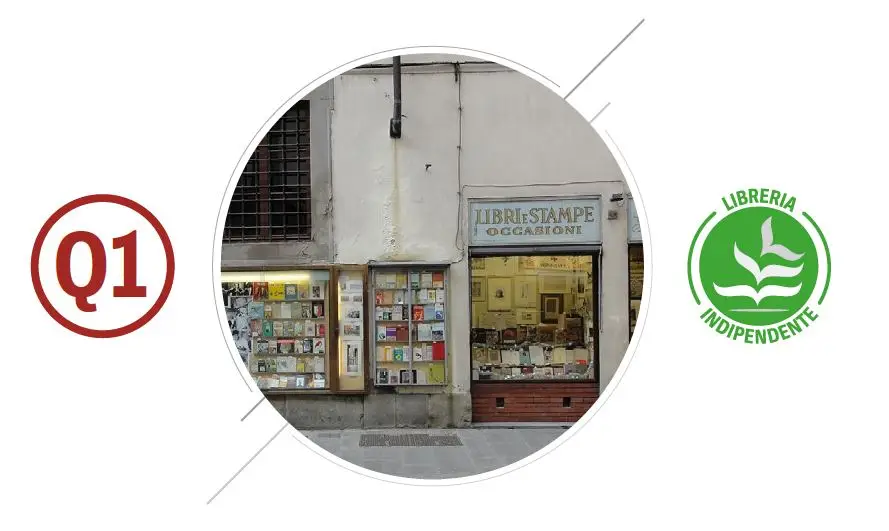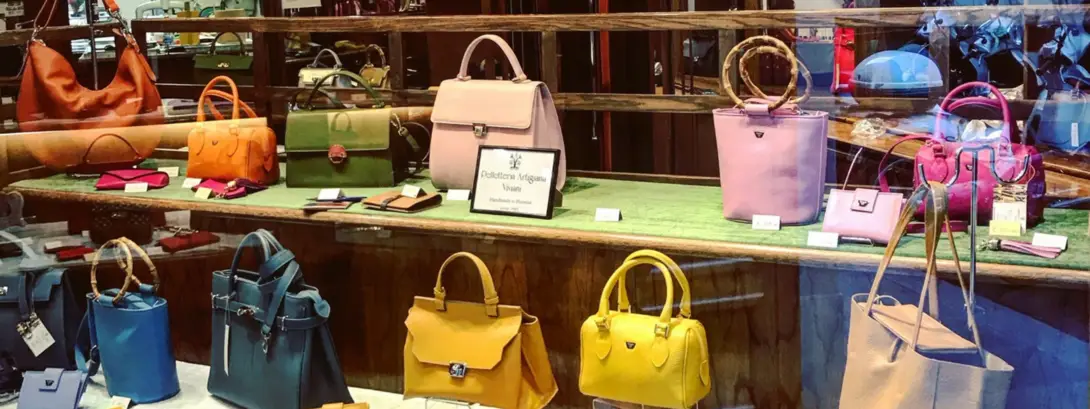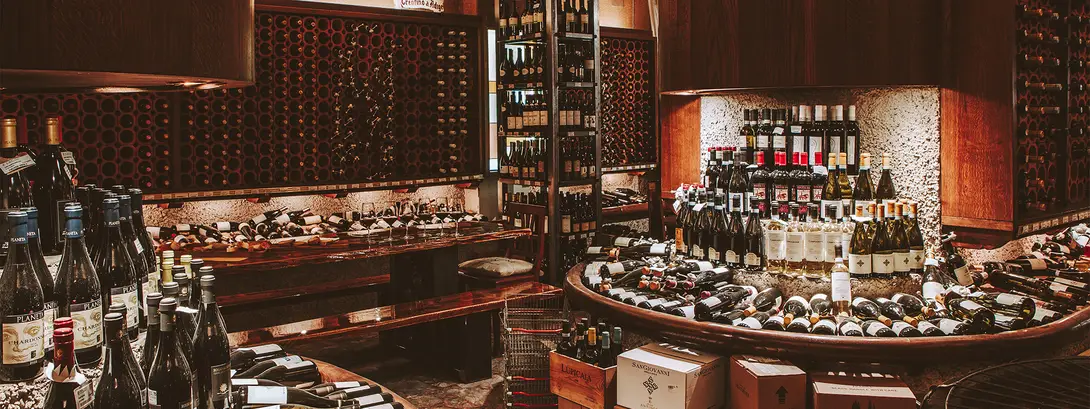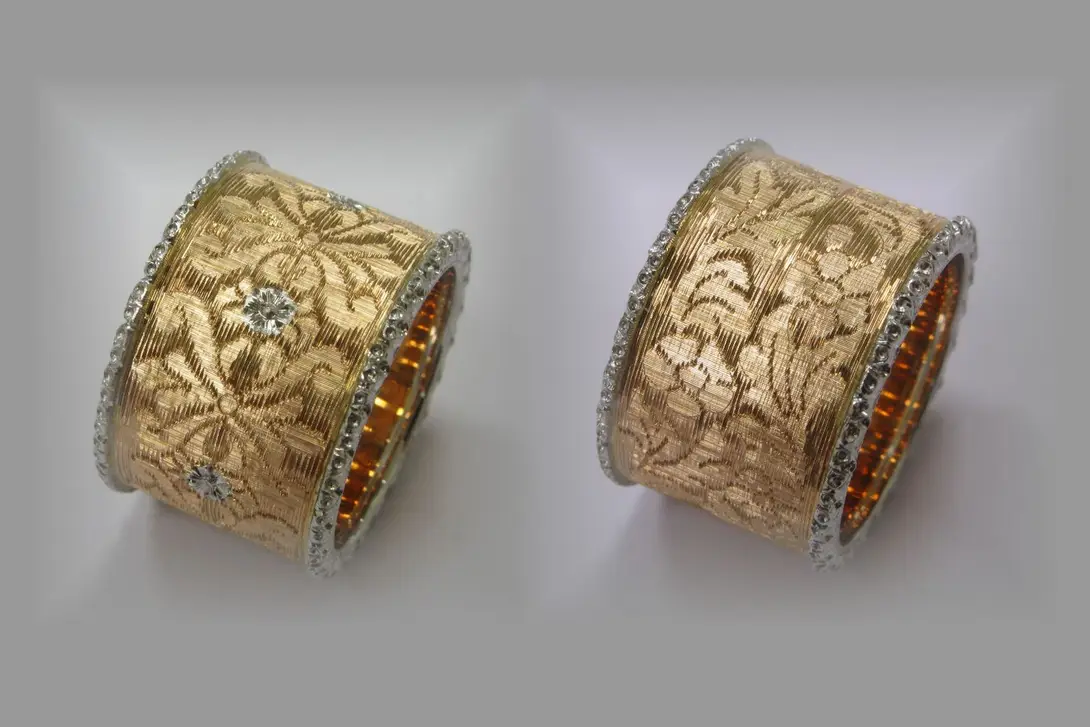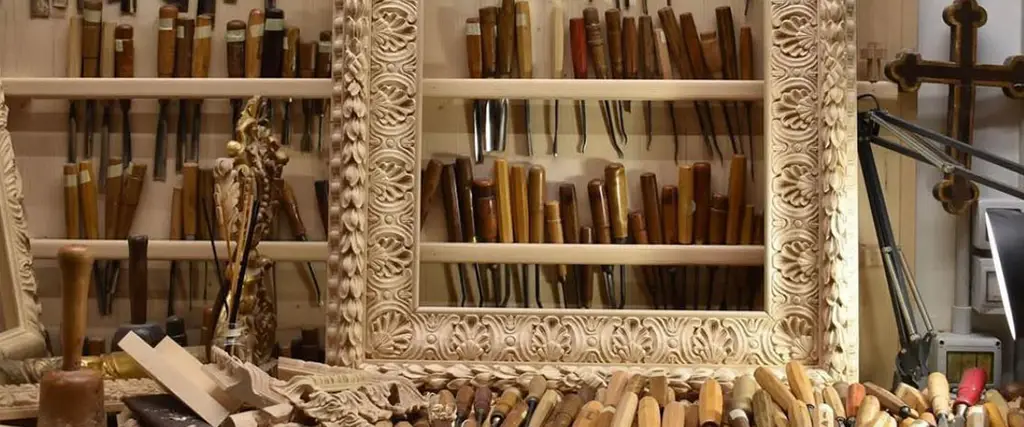
Botteghe storiche (Historical shops) for Firenze Rocks
The tradition of Florentine craftsmanship expressed through historic shops greets the rock world in Florence this June.
A circuit of long-lived workshops, with a tradition proudly asserted, where you can taste our specialities or shop in the sign of Florentine character.
Follow our itinerary, through the historical centre and more peripheral areas: the shops are all identified by the dedicated glass badge entitled Botteghe storiche per Firenze Rocks.
The places
Stages
Profumeria Invicta
Profumeria Invicta was founded in 1946 by Mario Nassi. The business, housed in a historic building, initially specialised in the production of hairdressing helmets, and later in the sale of hairdressing supplies.
In the 1950s, sales were expanded by introducing perfumery and jewellery accessories. The company later collaborated with Invicta, a school for hairdressers and beauticians. Despite the damage suffered during the 1966 flood, the shop retains both its original furnishings and shop windows, and is currently run by Mario Nassi's daughter and grandson
Scarpelli Mosaici
The Scarpellis, Masters of Art, create mosaic works by continuing the ancient tradition of Florentine commesso in semi-precious stones. The masterpieces they create emerge from their profound experience in the selection of stones and the choice of colour tones that the materials offer in nature.
Scarpelli's masterpieces can be admired all over the world.
Ottica Tulini
Ottica Tulini was founded in 1961, when Renzo Tulini opened his optician's business in the premises that once housed the Sbolci flower shop. After the damage caused by the 1966 flood, the business moved to its present location in Via Bufalini 13/r-15/r, protected by the Ministry as the site of the Baptistery Doors.
In 1997, Renzo's son Leonardo inherited his father's business. In addition to pioneering optometry and contactology, the shop specialises in the fields of meteorology, microscopy and geodesy.
Campolmi Filati
Campolmi Filati has its origins in the haberdashery shop opened in the 1930s by Emilio and Ida Campolmi, while their son Giampaolo decided to specialise in yarns in 1954.
The shop is located in the old kitchens in the former Santa Maria Nuova Hospital, founded by Folco Portinari, father of the famous Beatrice sung by Dante Alighieri, in 1288.
The ground floor, intended for sales, is characterised by a single room furnished with wood and metal furniture, displaying the products.
The Campolmi company has been continuing and handing down the ancient tradition of the Art of Wool for generations, producing its own yarns for the knitting industry, for the loom and for hand knitting.
Le Mossacce
Trattoria Le Mossacce opened in Via del Proconsolo in 1925. The name is attributed to the brusque manners of Marcello, the historical manager of the restaurant, who used to say ‘fuori uno, avanti un altro’ (out one, forward another) as soon as a customer finished his meal.
The trattoria consists of two rooms with walls covered in pink marble: the entrance room, with its marble and steel counter, and the main room, characterised by the presence of the open kitchen. The small tables in the room are used as table tops for the preparation of dishes before the restaurant opens. In fact, they have a steel top that is covered with a wooden top during customer reception hours.
Foto Locchi
The Foto Locchi photographic art and technique workshop has been in business since 1924 and is one of the oldest photo shops in Florence.
It has had a photographic archive since 1934, placed under the protection of the Ministry of Culture, which is recognised as one of the most important internationally for its historical value.
The archive consists of more than five million images, also thanks to recent acquisitions from other important Florentine archives, often unpublished and unique, relating to culture, sport and the chronicle of Italian life, especially Florentine life.
Vivoli Piero Il Gelato
In 1929, Serafino Vivoli founded a dairy in Via Isola delle Stinche, where they could get coffee and buy whipped cream. His brother Raffaello joined them, giving the business a further boost, so much so that in 1932 the Vivoli brothers decided to try their hand at making ice cream.
The Gelateria's fame was such that, in the 1960s and 1970s, it was mentioned in American, British, French and German tourist guides as a place not to be missed when visiting the city of Florence.
The interior features a wooden coffered ceiling and stoneware flooring with white marble inserts. The furniture is made of wood, with pink marble tops and ceramic decorations.
Filistrucchi
The Filistrucchi workshop, founded by Angelo Filistrucchi in 1720, is the oldest business in the city, handed down through generations from father to son.
It started out as a hair and make-up shop and over time specialised in making wigs and masks for the theatre, achieving international fame and leading the business to collaborate with major film productions and prominent personalities on the artistic scene.
The building is grafted into the layout of the old walls; the shop window characterises the street by displaying the wigs and handmade masks produced.
The interior is characterised by the presence of the historical wooden mannequins, custom-made during the various commissions
Bottega d'arte Maselli
The business, established in 1955 as an art workshop, is part of the ancient Florentine tradition of artistic craftsmanship, boasting a national and international private clientele. Today the shop is a small artisan workshop that, thanks to its experience, passion and attention to detail, is able to offer servicesof impeccable quality for frame work; from the production of custom-made artistic frames of any model, designed by us or at the customer's request, to the realisation of gouache gilding in pure gold, silver-plating and mechanizing, to the restoration of wooden and pastel frames.
Among the most significant works we can mention the frame for the 'Grisoni' painting, kept at the Uffizi Gallery in Florence, the restoration for the Vatican City, the frame for Domenico del Ghirlandaio's 'Nativity', located in the altarpiece of the Basilica of S. Lorenzo in Florence, and other restorations for the same basilica.
Libreria Giorni
Giorni Libri Stampe d’Occasione has been in operation since 1937. The bookstore is in a vaulted basement inside the convent that now houses the Galileo Galilei Classical High School and has always been run by the Giorni family.
The bookstore offers a wide selection of used and out-of-print books covering various subjects from art to general culture. It specialises in classical and operatic music and sells sheet music. During the fascist period, the Giorni bookstore carried books not favoured by the regime. From the 1950s, original prints, reproductions and books were added to the collection.
Il Civaiolo
Il Civaiolo was established in 1948, when Alfredo Poggesi together with his wife Dina decided to open a shop for the sale of warmers, oil lamps, earthenware pots and pans, chickpeas, beans, trabicycles, hay and fodder for horses. The old shop soon became a point of reference in the centre of Florence for the purchase of household items and above all ‘civaie’, or seeds and dried pulses. With time, the shop became a real bazaar, and today it is run by his son Stefano Poggesi together with his wife Silvia.
Il Civaiolo sells household goods, handicrafts, hardware, garden tools, haberdashery, wood, as well as spices, herbs, rice, flours and quality ‘civaie’.
Pelletteria Artigiana Viviani
The Pelletteria Artigiana Viviani is located in Via Guelfa, in the historical centre of Florence. Founded in 1965 by Renato Viviani, it has distinguished itself throughout its history for the elegance and durability of its handcrafted leather products.
Still today, the Viviani family hands down the historical Tuscan tradition of handcrafting, creating true works of Florentine craftsmanship with precious collections of bags and accessories. Unique pieces made by hand from top quality materials.
Ristorante Sabatini
The Sabatini restaurant, opened in 1924 in the nearby Via Valfonda, moved to its current premises in 1932 during the construction of the new Santa Maria Novella station.
The last transformation of the premises dates back to 1966, when the back garden was closed to allow for a new layout in classical style and the installation of air conditioning. Managed in the past by the Sabatini family, since 1978 it has been owned by the company FIVE di Schiavi Angelo & C. s.a.s., which has maintained its furnishings and character as a refined and elegant restaurant.
Romano Oreficeria
The Romano jewellery and goldsmith shop in Via Cerretani was established in January 1973. Founded by Romano Balatri, employees Giovanni Mugnaini, Leonardo Balatri and Patrizia Marinari have been working there since 1976. When the founder died in 2013, his son Andrea Balatri took over, and in 2015 the three employees took over the business, becoming the owners and managers of the jewellery-gallery.
With a focus on craftsmanship and ‘Made in Florence’, the business aims to offer a showcase for artisans.
Perché no!...
The shop opened in 1938 with the sale of polenta and castagnaccio. A year later it began its activity as an artisan ice-cream parlour and by then it had already become one of the most renowned premises in Florence, for its ice creams and especially for its ‘semifreddi’.
In 1950, the shop underwent major internal changes; in particular, the walls were covered with onyx slabs that still adorn the premises today. With the same onyx, mosaic master Giovanni Fiaschi made a clock that has become the shop's symbol. The business was taken over in 1991 by Mrs Paola and her daughters Cecilia and Valentina, who rediscovered old and original recipes and began producing various flavours, paying particular attention to the quality of the ingredients.
Famous are the cooked cream, hazelnut, pistachio, Sicilian cassata and granita ice creams.
Enoteca Alessi
Alessi's family-run business began in 1952, initially as a confectionery shop. In 1970 the shop was expanded with a wine shop, and in 2007 with a wine shop.
Over time, three generations succeeded each other in running the business, maintaining quality and developing the wine business.
The Enoteca Alessi offers customers a journey of taste through sweets, gastronomy, wines and spirits. More than two thousand national and international wine labels are available for tasting on the lower floor of the premises, while the upper floor houses the wine cellar reminiscent of ancient cellars.
Hotel Bernini Palace
Le notizie più antiche dell’albergo – il primo a Firenze ad avere l’acqua corrente e il primo a disporre di una stalla per i cavalli degli ospiti – risalgono al XIV secolo quando l’edificio era proprietà dell’antica famiglia Della Pera, antenati della famiglia dei Peruzzi.
Intorno alla metà del 1800, l’edificio ospita l’elegante Albergo dello Scudo di Francia. Tra il 1865 ed il 1870 diventa Hotel Columbia Parlamento: grazie alla sua conveniente posizione, infatti, è frequentato dai Parlamentari della Camera che si riuniscono a Palazzo Vecchio e dai Senatori di Palazzo Pitti, quando Firenze era Capitale del Regno d’Italia.
Alcuni decenni fa è stato oggetto di un capillare restauro e ammodernamento finalizzato al recupero dell’attività alberghiera. Durante i restauri è stato riportato alla luce un loggiato del 1500 e ripristinata la grande sala al primo piano affrescata con ritratti dei protagonisti del Risorgimento, poi denominata Sala del Parlamento, oggi Sala delle Colazioni.
Belli Blanes
Vendiamo oltre al legno dorato in stile fiorentino, anche articoli in ceramica ed altro materiale rigorosamente prodotto in Italia.
I nostri sono prodotti esclusivamente artigianali, creati dai migliori artigiani fiorentini ed italiani scelti da noi dopo un’accurata selezione fatta negli anni che ci permette di garantirne la qualità a chiunque voglia acquistarli.
Nencioni Orazio Trippaio del Porcellino
A tripe stall popular with tourists and Florentines, located near the Tacca fountain at the Mercato Nuovo, known as the Porcellino.
Marzotto - Carta e Cartoni
The Marzotto Carta e Cartone (stationery) shop was opened in 1890 by Antonio Marzotto, a nobleman from Treviso, for the sale of paper and cardboard. In 1956 Donato Cubattoli took over the business, which is currently run by his son Andrea and Barbara Baravelli.
The workshop is located on the ground floor of the sixteenth
16th-century Ramirez de Montalvo palace, built in 1558 to a design by Bartolomeo Ammanati, with the façade decorated with graffiti by Bernardino Poccetti to a design by Giorgio Vasari. The original furnishings and historical work tools are still present inside the business
historical tools. On the shelves are hand-coloured papers, rice and Florentine paper, greeting cards, notebooks, art and office accessories.
Trattoria Sant'Agostino
The history of the Trattoria Sant'Agostino is linked to that of the building's historic cellars. In fact, the business began as a mescita, founded and run by the Pucci family since 1958, and then became a trattoria with the name Trattoria Sant'Agostino.
In 2000, the trattoria was separated from the Enoteca.
The restaurant overlooks Via Maffia with one window and Via Sant'Agostino with two windows, and has four rooms characterised by wooden floors and wood-beamed or flat ceilings.
The entrance is characterised by a wooden counter with a marble top, probably dating back to the 1960s.
Trattoria Da Burde
"Burdèl" era il soprannome romagnolo con cui venivano chiamati un tempo i commercianti di maiali, tutti di origine romagnola. Uno di questi, fiorentinissimo, tal Barducci fondò nel 1901 la fiaschetteria, detta appunto "Da Burde" che allora si trovava in Via di Peretola. Il trasferimento definitivo nell'attuale Via Pistoiese avvenne nel 1927.
Il Barducci si imparentò poi con i Gori e nacque così la trattoria. Il nipote Turiddo successe a Burde, ereditandone il soprannome. Con la moglie Irene, arrivata giovanissima a Firenze dalla natia Valdinievole, ha costituito per oltre sessant'anni il monumento vivente alla vocazione di oste. Irene è stata la "regina" dei fornelli fino a quasi novant'anni; oggi i suoi figli Giuliano, Fabrizio e Mario sono i re di questa antica bottega, dove all'origine si vendeva di tutto comprese le fruste e la biada per i cavalli e dove ancora oggi si continuano a vendere specialità gastronomiche come la soprassata o la finocchiona e a proporre i piatti della vera cucina casalinga fiorentina.
Farmacia Paoletti
The first documents testifying to the existence of the Paoletti Pharmacy date back to 1817, but the foundation is undoubtedly earlier.
Still located in the same premises, it was first owned by the Cialdini family, then by the Paoletti family. During the 19th century, it obtained a licence as a druggist's shop for the sale of salt, sugar, coffee, snuff and colonials.
Since 1948 the owner has been Pierluigi Danti, who restored the premises, partly preserving the original furniture. It is currently run by his children Donata and Luigi, who deal in galenic preparations, including veterinary, homeopathy, dietetics and dermocosmetics.
Caffè Dogali
The Caffè Dogali was founded in 1914 from the experience of a family of restaurateurs. The café is located in Campo di Marte, in the area of the sports facilities, and offers customers quick lunches, afternoon group snacks and aperitifs. The business is now run by the third generation with Alessandro Pamploni, who took over from his father and grandfather.
This establishment is mentioned by Giulio Gandi in ‘Antiche e caratteristiche trattorie Fiorentine’, a book from the 1920s, reprinted in an anastatic edition in 1986 by the publisher Salimbeni.
Sergio Batacchi Creations
Sergio Batacchi Creations was born in 1969 from the craftsmanship of the founder Sergio Batacchi, father of the current owner Filippo, who with passion continues the family tradition by offering his customers jewellery of refined elegance, still following the ancient techniques of Florentine goldsmithing, with an eye to new technologies.
For over 50 years, with the same dedication and love, material is transformed into sentiment.
